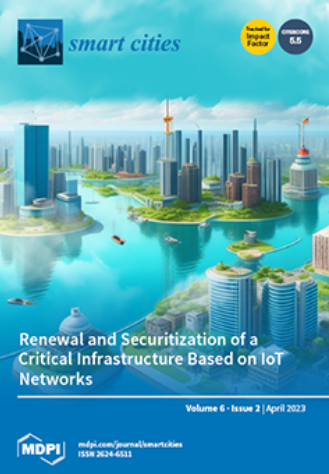发展中经济体的智能城市评估:范围界定综述
IF 5.5
Q1 ENGINEERING, ELECTRICAL & ELECTRONIC
引用次数: 2
摘要
由于智能城市评估是一个相对较新的研究和实践领域,因此关注智能城市评估(SCA)应用的研究文章有限。然而,迄今为止,已经进行并发表了许多研究,特别是在发展中国家,其广泛目标是建立以智能城市评估为中心的理论框架。本研究旨在系统地审查现有的SCA文献,特别是在发展中经济体的背景下,并为参与智能城市项目的各种利益相关者提供有价值的见解。该研究的具体目标是综合发展中经济体智能城市评估的现有文献,分析智能城市评估所采用的框架,并确定这些框架中的关键差距,同时为未来的研究提供建议。所采用的方法涉及范围界定审查程序,所收集和分析的数据是针对发展中经济体的。研究结果表明,SCA经常结合其他研究方法,如混合和定量分析,并采用涵盖不同学科领域的多学科方法。虽然社会科学成为一个突出的主题领域,但可持续性、可再生能源和工业发展在智能城市评估中也发挥着至关重要的作用。这项研究强调,ISO 37122:2019是最广泛采用的框架,因为它具有结构化的方法、衡量一段时间内进展的能力以及与其他城市进行基准测试的潜力。然而,重要的是要考虑到每个框架都有自己的优势和劣势,城市可以选择使用多个框架或根据自己的具体需求进行调整。我们的论文最后强调了这项研究在为发展中经济体的智能城市评估提供全面见解方面的重要性,以及进一步研究以解决已发现的差距和加强未来评估的必要性。本文章由计算机程序翻译,如有差异,请以英文原文为准。
Smart City Assessment in Developing Economies: A Scoping Review
There are limited research articles that focus on smart city assessment (SCA) applications as it is a relatively new field of research and practice. However, numerous studies have been conducted and published to date, particularly in developing countries, with the broad objective of building theoretical frameworks that are centered on smart city assessments. This study aimed to systematically examine the available literature on SCA, particularly in the context of developing economies, and provide valuable insights for the various stakeholders involved in smart city projects. The specific objectives of the study were to synthesize the existing literature on smart city assessment in developing economies, analyze the frameworks employed for smart city assessment, and identify critical gaps in these frameworks while providing recommendations for future research. The methodology employed involved a scoping review procedure, and the data that were collected and analyzed were specific to developing economies. The findings revealed that SCA often incorporates other research methods, such as mixed and quantitative analyses, and embraces a multidisciplinary approach that encompasses various subject areas. While social science emerged as a prominent subject area, sustainability, renewable energy, and industrial development also play crucial roles in smart city assessments. This study highlighted that ISO 37122:2019 is the most widely adopted framework due to its structured methodology, ability to measure progress over time, and potential for benchmarking against other cities. However, it is important to consider that each framework has its own strengths and weaknesses, and cities may opt to utilize multiple frameworks or tailor them to their specific needs. Our paper concludes by emphasizing the significance of this research in providing comprehensive insights into smart city assessment in developing economies and the need for further studies to address the identified gaps and enhance future assessments.
求助全文
通过发布文献求助,成功后即可免费获取论文全文。
去求助
来源期刊

Smart Cities
Multiple-
CiteScore
11.20
自引率
6.20%
发文量
0
审稿时长
11 weeks
期刊介绍:
Smart Cities (ISSN 2624-6511) provides an advanced forum for the dissemination of information on the science and technology of smart cities, publishing reviews, regular research papers (articles) and communications in all areas of research concerning smart cities. Our aim is to encourage scientists to publish their experimental and theoretical results in as much detail as possible, with no restriction on the maximum length of the papers published so that all experimental results can be reproduced.
 求助内容:
求助内容: 应助结果提醒方式:
应助结果提醒方式:


